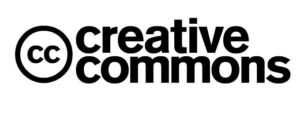- You are here:
- Home »
- Blog »
- Content Marketing »
- Do You Know Copyright Law?
Do You Know Copyright Law?
 Copyright law was designed to give authors and artists exclusive rights to their work to make and monetize them. One of the most common problems you’ll see online today are companies using pictures without permission. Just imagine this very likely scenario: You’re at home relaxing and browsing your favorite websites. Suddenly, you notice that one of the pictures they’re using is a picture you took a couple months ago. You didn’t give them any permission to use it, and now it somehow made it on their site! What do you do now? Likewise, if you’re a company using a copyrighted image without permission, you’re going to run into some problems. Start learning the basics of copyright law today to avoid and prevent these issues from ever happening.
Copyright law was designed to give authors and artists exclusive rights to their work to make and monetize them. One of the most common problems you’ll see online today are companies using pictures without permission. Just imagine this very likely scenario: You’re at home relaxing and browsing your favorite websites. Suddenly, you notice that one of the pictures they’re using is a picture you took a couple months ago. You didn’t give them any permission to use it, and now it somehow made it on their site! What do you do now? Likewise, if you’re a company using a copyrighted image without permission, you’re going to run into some problems. Start learning the basics of copyright law today to avoid and prevent these issues from ever happening.
Fair Use
You might have heard about the term “fair use” before. But what is it? Fair use is actually an exception to the exclusive right that is given to copyright holders. Take YouTube for example. There’s tons of channels out there that take copyrighted material and put them into their own videos. However, if the video is using that material to provide commentary, criticism, or parody the content, then under fair use laws, it’s okay. You can think of these things such as movie reviews. While yes, the video clearly shows clips from the movie, but the creator is providing his/her own thoughts to give some sort of context to what they’re talking about.
One thing that’s a huge no-no is to take someone’s work, claim it as your own and monetize it. An example of this is using a copyrighted song by a musician and throwing it into your video to provide a background track. That’s what you call copyright infringement. When you upload your video to YouTube, you are stating that you own ALL the rights to your video. That includes the audio as well. However, if you were not trying to monetize off of the song and provide proper credit to the musician, then that’s okay.
 Creative Commons
Creative Commons
Creative Commons is actually a nonprofit organization that allows seamless sharing and the use of creative content that’s easy to use and free. A Creative Commons license works alongside with copyright to allow the holder to easily change their copyright terms. The license holder can allow for anyone to share and use their photographs but forbid any companies from selling them. You can also set terms such as allowing for the sharing of your content as long as the person that does it provides you with credit. In essence, Creative Commons licenses are meant to be flexible.
Preventing Infringement
If you’re looking for pictures to spice up your blog post, there’s many ways you can go about it without infringing on any copyrights. First and foremost, the simplest thing you can do is just take your own pictures. This ensures that you are the sole owner of that picture. Another method involves buying stock photos. This is a common practice among companies that need pictures for their digital or print ads along with their promotions. When you purchase these stock photos, they come with a license that allows you to use these pictures in certain areas. However, these kinds of licenses will still restrict their pictures to be used for resale.
If taking your own pictures and buying stock photos are a hassle, the easiest method that I found is to use a tool like Search Creative Commons. It isn’t a search engine, but what it does it allows you to easily search from other service providers like Google and Flickr for pictures that aren’t copyrighted, but rather contain a Creative Commons license. As mentioned previously, this type of license usually allows for the reposting of their content as long as it’s not for commercial purposes. One should still be wary though of using content that is through this search under as there is no way for the organization to know if a specific type of content has or hasn’t been placed under their terms of licensing. When in doubt, contact the copyright holder!


